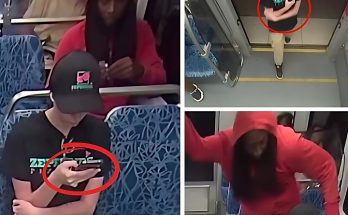Not the silence of the crowd at Utah Valley University after a sudden collapse, nor the silence of reporters waiting for an official statement.
It was the silence inside a modest three-bedroom apartment in St. George, Utah — the silence between two young men who once shared games, jokes, and long hours of isolation, until one of them walked into police custody and the other walked into history.
For days after the tragedy, speculation swirled.
Who could have planned it, what could have driven such a fall, why did it happen here?
Authorities moved quickly, but the detail that turned the investigation upside down did not come from officers in uniform.
It came from a roommate.

His name: Lance Twiggs.
Quiet, reclusive, fond of video games and late-night TikTok jokes.
Not a name anyone expected to see in national headlines.
And yet, when Lance appeared before investigators carrying his phone, the ground shifted.
On that phone were lines of private messages, typed out in the hours before and after the incident.
They were not essays.
They were not manifestos.
They were simple texts — but inside them lay the seeds of a national tragedy.
One spoke of going back to a certain place.
Another of leaving something wrapped and hidden.
Another of watching from a distance.
Another of changing clothes.
None of them contained a direct admission, but when pieced together, they became a damning trail.
For investigators, the meaning was unmistakable.
For the public, the shock was unbearable.
Because the one who handed over those messages was not an outsider.
He was Tyler Robinson’s closest companion.
Friends from Pine View High School remembered how the two had been inseparable.
Both turned inward, both gamers, both more comfortable on Discord than in crowded rooms.
Neighbors said they rarely spoke but always blasted music together.
It was a bond that looked, from the outside, like typical youth in a quiet desert town.
But as details emerged, that bond began to look different.
Not just two roommates splitting rent.
Not just two young men avoiding the world.
Something closer.
Something unspoken.
Something that made the betrayal all the more chilling.
National outlets reported that Tyler had been living with a transgender partner.
Fox and the New York Post both published versions of this, and when Daily Mail pressed Lance’s grandfather, he did not deny it.
“I don’t want to comment on that,” he said.
“I’m not sure what his situation is exactly right now.”
It was the refusal to deny that set tongues wagging.
Why leave the rumor alive unless there was some truth to it?
Why stay silent if it was all nonsense?
And in that vacuum of words, the speculation only deepened.
Because Tyler’s alleged victim was not just any man.
He was a conservative activist, widely known for his outspoken views on gender identity and his belief that biological definitions should guide policy. His speeches often sparked intense debate and criticism from those who disagreed
If Tyler truly was in a relationship that crossed those boundaries, then the motive became too stark to ignore.
It would mean that this was not just a tragedy of politics.
It was a tragedy of the personal colliding with the public.
A bond at home clashing with a voice on the stage.
A private life that could not endure the public words of a man who symbolized rejection.
The grim messages Lance carried into police hands suddenly took on a new resonance.
They were not just instructions.
They were not just a timeline.
They were the hidden diary of actions leading to a collapse — actions that carried the weight of both ideology and intimacy.
Neighbors remember the days before.
An eleven-year-old boy knocking on the door, seeing Tyler glance nervously back inside.
A woman next door hearing music, then silence.
Another student recalling how Tyler seemed restless, more political, more distracted than before.
All of it seemed trivial until the night everything changed.
Until the flowers appeared outside Utah Valley University.
Until the nation woke to headlines about the activist’s sudden absence.
Until the name Tyler Robinson became synonymous with ruin.
The public wanted to know why.
Why would a young man with a scholarship, an apprenticeship, a future, throw it all away?
Why would someone so quiet suddenly turn into someone unforgettable for all the wrong reasons?
The answer, or at least the shadow of one, lay in the bond he shared with Lance.
Two men, one possibly transgender, living together in a town that never quite accepted difference.
One of them spending nights online absorbing rhetoric.
The other staying silent until silence was no longer possible.
When investigators found metallic clues etched with strange phrases — a meme about resistance, a crude taunt, a borrowed lyric from “Bella Ciao” — they realized this was not just a case of loneliness.
It was a case of performance, of identity, of words turned into symbols.
And when those symbols were matched against the messages on Lance’s phone, the picture came together.
Tyler was not simply hiding evidence.
He was narrating his downfall.
Every text, every inscription, every nervous glance was part of a story that ended in custody.
And the man who brought that story forward was the one closest to him.
Yet the roommate is not celebrated.
He has not spoken publicly.
He did not seek attention.
He merely opened his phone, let investigators photograph the lines, and disappeared back into the shadows.
His grandfather would not explain.
His neighbors could not.
His family said little.
The silence is its own statement, louder than denial.
And so the public is left to wonder.
Were these two young men only friends?
Were they more?
Was this an ideological clash, a personal betrayal, or both?
The truth may never be fully spoken.
But the pieces fit together in ways that leave readers shivering.
A conservative activist, famous for words against transgender identity.
A young suspect, living with someone rumored to be transgender.
A bond that blurred lines between friendship and intimacy.
And a collapse that ended in national mourning.
The activist’s supporters grieve quietly.
They leave candles and flowers.
They speak of a man who inspired, who angered, who mattered.
And they shake their heads at the thought that his life ended not in debate but in tragedy.
Tyler waits in custody.
He no longer controls the narrative.
His messages do.
His inscriptions do.
His roommate does.
The public reads those fragments again and again.
They do not find comfort.
They find a haunting.
A sense that the real cause was not only ideology but intimacy.
That the tragedy was not just political but personal.
And that is why the betrayal cuts so deep.
Not because a roommate spoke up.
But because the bond between them — the bond that may have been romantic, the bond that may have been transgender, the bond that crossed lines the victim himself rejected — is the bond that makes the motive visible.
The silence of the family, the refusal to deny, the etched phrases, the nervous glances, the texts about wrapping and hiding — they all converge.
They form a web not of certainty but of probability.
A picture so dark that readers can only call it grim.
In the end, it was not ideology alone, nor loneliness alone, nor betrayal alone.
It was the collision of a private life and a public voice.
And when the two could no longer coexist, the result was a tragedy that left one man gone, another in custody, and a roommate forever marked by the role he played.
The nation still asks why.
Investigators still weigh evidence.
But for those who read the texts, hear the rumors, and remember the victim’s words, the answer feels close.
Too close.
Close enough to chill.
Because the one who truly delivered Tyler into the hands of police did more than provide evidence.
He held up a mirror to a bond that was never meant to survive in silence.
And in that mirror, the public saw not just betrayal, but the real cause of every tragedy that followed.



